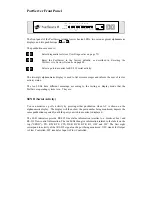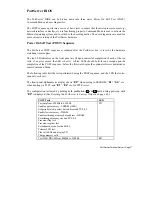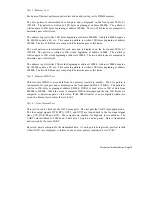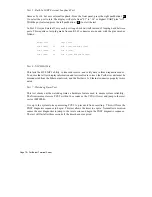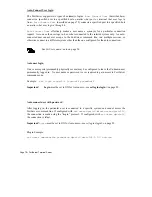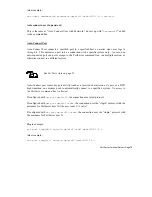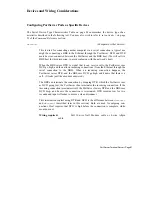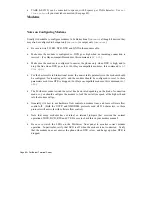
PortServer Terminal Server
Ÿ
Page 83
dev=mout
(Modem Out)
This is designed for a modem for outgoing communications with full DTR/DCD
modem support.
Until an outgoing connection is made, DTR remains low, keeping a modem from
answering the telephone. When an outgoing connection succeeds, DTR is raised.
The state of DCD is ignored, except that a high-to-low transition of DCD closes the
connection, and drops DTR. DTR then remains low for 2 seconds to assure a clean
modem disconnect, and then input is flushed to discard DISCONNECT messages,
etc.
Wiring required:
Modem connections require that TD, RD, DCD, DTR and
GND should always be wired in the cable. With modern
multi-speed, data compressing modems, you probably also
want to wire RTS and CTS for hardware flow control
.
dev=mio
(Modem In & Out)
This is designed for a modem used as a bi-directional device (incoming and out-
going) with full DTR/DCD modem support.
When idle, the PortServer leaves DTR high so the modem will answer the telephone.
If DCD goes high when the device is idle, it assumes an incoming connection, and
acts like a “
dev=min
” device until the device goes idle again.
If an outgoing connection succeeds when the device is idle, it switches into outgoing
mode and acts as a “
dev=mout
” device until the connection is dropped. (DTR
remains low for 2 seconds to assure a clean modem disconnect, and then input is
flushed to discard DISCONNECT messages, etc.)
Wiring required:
Modem connections require that TD, RD, DCD, DTR and
GND should always be wired in the cable. With modern
multi-speed, data compressing modems, you probably also
want to wire RTS and CTS for hardware flow control.

